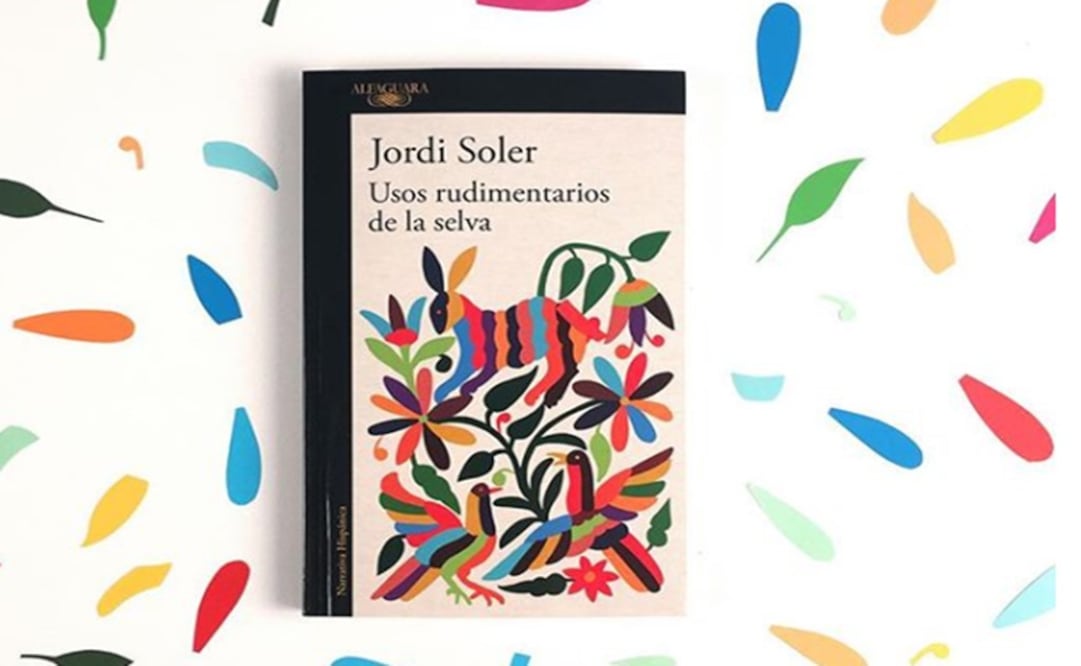Más Información

Extorsión, abuso sexual, drogas y ciberacoso, los delitos latentes para infancias; delincuentes usan videojuegos

Hijos de presuntos capos mexicanos estuvieron en escuela de élite de EU: Departamento de Tesoro; pagaron hasta 102 mil 235 dólares por año
Leer en español
Artisans and cultural promoters from Tenango de Doria, Hidalgo
, have another case against cultural appropriation . This time it's against the Spanish publishing house Alfaguara , part of Penguin Random House , for u sing a drawing from Tenango that their design department took from the internet as a book cover , without giving due credit or referencing that it is a popular art expression by the inhabitants of Tenango de Dori a. The book in question is Usos rudimentarios de la selva (Rudimentary uses of the jungle), by Jordi Soler , a Mexican writer.
This event has taken social media by storm , where users have questioned the use of these traditional drawings without giving the artisans credit. Also, promoters and experts in cultural legislation are reporting the case to the National Human Rights Commission ( CNDH ) for violations of the artisans' cultural rights. The complaint brought before the CNDH j oins several others made last year, for example, the one made against Nestlé for the wrongful commercial use of the artisans' drawings, says the cultural promoter and researcher, Carlos Arturo Martínez Negrete.
A colorful Tenango design can be seen in Jordi Soler's book cover
, whose authorship is attributed to the graphic designer Nora Grosse , who resides in Barcelona.
In letters sent to the publishing house's representatives in Mexico , the Tenangos Drawers from Tenango de Doria Association A.C. asked that the case cleared be by the end of May and that the publisher should contemplate repairing the damages to the community . After the allegations broke in social media, Penguin Random House apologized through a latter and claimed that “the illustration , found online , was selected as the book cover because the motif is very related to the content of the novel”. “The copyright mention , allegedly attributed to Nora Grosse , a member of the design department at Penguin Random House , has been an internal mistake because copyright mentions are never attributed to designers in our payroll”.
The statement , signed by the representative of the publishing house in Mexico, Quetzalli del Carmen de la Concha Pichardo , says that the “ reproduction was made without profitable or damaging intentions ” and claims that they will change the copyright mention in the electronic version of the book to a key that will explain that the illustration is “ based on the traditional embroideries from Tenango , made by the Otomí communities of Mexico”. And adds that they will do the same with the future reprints of the book.
Carlos Lara
, a cultural legislation expert and someone who has followed these cases, questions the alleged lack of awareness in an international publishing house that supports copyright protection in regards to traditional iconography. He says that this time, the best strategy to put pressure on the publisher was to spread the case on social media . Also, the representatives of the artisans ' association delivered , a few weeks ago, a letter to the Spanish ambassador in Mexico , Luis Fernández-Cid de las Alas Pumariño , to ask for “his opportune intervention against the violation of the cultural rights of the members of the Tenango de Doria community”.
gm
Noticias según tus intereses
[Publicidad]
[Publicidad]













